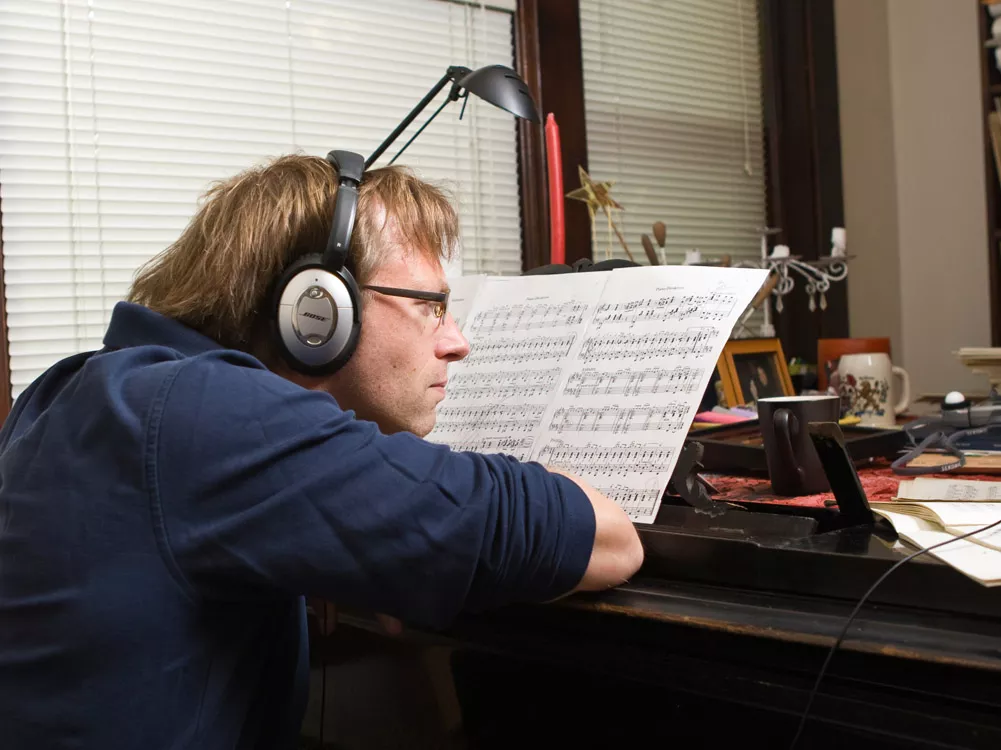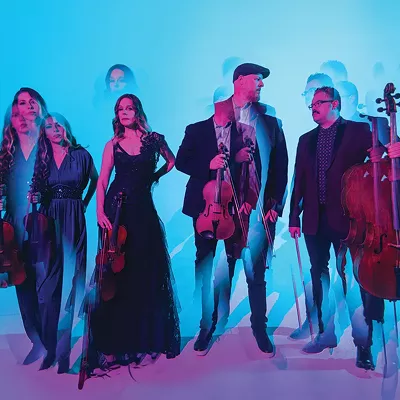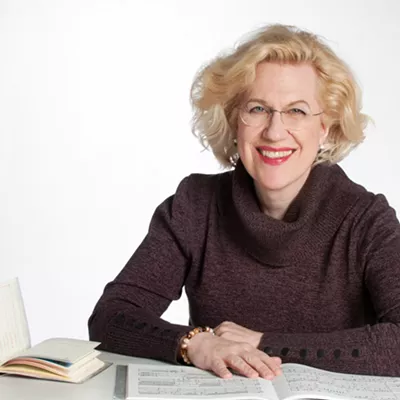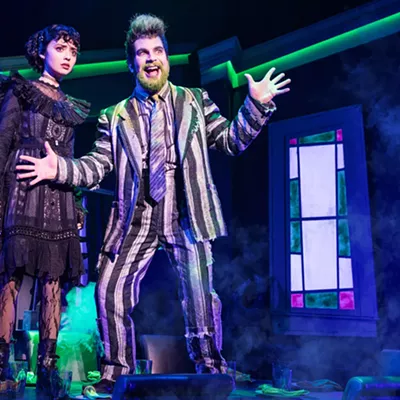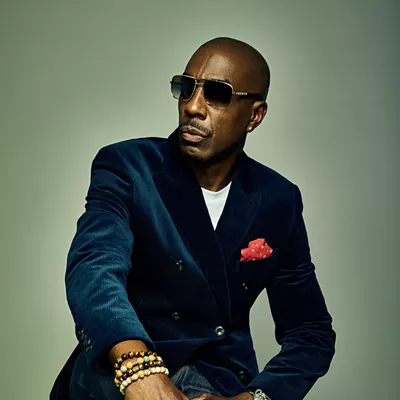Angels or demons? Renata can’t tell who her nighttime visitors are. So she decides to dabble in the occult.
Bad idea: Like a female Faust, she ends up getting dragged off to hell.
OK, so plot isn’t the strong point of Sergei Prokofiev’s opera The Fiery Angel. Maybe that explains why nobody would produce it, and why Prokofiev cannibalized his own opera to create his Symphony No. 3 (which the Spokane Symphony will perform this weekend).
But knowing the opera’s storyline isn’t essential to appreciating Prokofiev’s Third. What’s important is knowing that Prokofiev is trying to scare the pants off you.
Two minutes into the third movement (which is marked “Allegro agitato,” meaning “fast and frantic”), there’s a passage with the brass shouting over freaky strings, then a drumroll and throbbing basses. It sounds like a horror-movie soundtrack, and sure enough, Renata’s going nuts. (Check the trailer for a production of the opera by St. Petersburg’s Mariinsky Theatre, with demons in loincloths strolling with skeletons and Renata writhing.)
“There are five pages of, ‘Ooh, ooh, this is very agitated,’” says Eckart Preu, the SSO’s music director. He’s sitting in his Browne’s Addition apartment, flipping back and forth through the score and pounding his fists on the table. “There are these little voices whispering in her head,” he says, “and they’re all talking at once.” “But what kind of madness is it?” Eckart asks. “It has almost no substance. You can’t play it assertively. You have to lighten up the bow, stroke it very lightly. It’s not espressivo.”
OK, so the maestro is after something subtler than a scary movie’s melodrama. Let’s try interpreting another passage. Six minutes after the symphony’s crash-of-chords opening, there’s a hectic brass fanfare (“well, there are a lot of those,” Eckart mutters); a couple of minutes earlier, strings get plucked and trumpets get playful.
“See, you call that playful,” Eckart admonishes. He fast-forwards the CD he just pulled out of his car stereo: Seiji Ozawa conducting Prokofiev’s Third with the Berlin Philharmonic. What Eckart calls “the love theme” and “the despair theme” flicker by, squeaky-fast, as he makes mental notes — “The second violins are just an accompanying line here ... might be some pitch problems there ... hear the little bass solo? Just sticking its head out” — until he gets to what he wants.
“The reason I call this not playful is because the response to these five measures is very agitated and nervous,” he says. “The trumpets are with their mutes” — he scrunches up his face — “so it’s a more biting sound, nagging.” He listens for the repeats, which get louder and more irregular. “It comes now the third time,” he says, punching his fists together. “This time is fortissimo.”
He wants trumpets at maximum volume and pizzicato that’s nagging. Nothing playful.
After listening to several snippets of the Ozawa, Preu calls it “very colorful, very well played, a good recording. There are a couple of things that I would do differently. There are tempo and ritardando [deceleration] questions, and there are ensemble issues. In the last movement, the trumpets are doing whatever they want, and the violins are in a different place, and it takes them a couple of measures to get back together.
“Well, when you hear that, alarm bells go off. I mean, how can that happen? If it happens even to a good orchestra like that, how can we avoid it?” Listening to more of Ozawa, he comments on different kinds of soft music (“sustained warm,” “a pale piano,” or a simple “hush”); Russian composers’ predilection for brass; and how, during the second movement, the violas will have to be matched up to the flutes and bassoons.
Other recordings come up. “I prefer the Muti,” Eckart says, referring to the Philadelphia Orchestra’s recording of the Third, with Riccardo Muti conducting. “He’s a little freer with the text. He takes liberties — he does the ritardandos, he takes this section or that a little slower — he just does it.”
Gennadi Rozhdestvensky recorded the Third with a Soviet orchestra, but Preu doesn’t like that version at all: “The sound quality is bad, and it’s too fast and too straightforward [imitates a robotic conductor]: It’s all ‘one, two, one, two.’ There’s no break. The music goes on no matter what happens.”
Eckart also scoffed at the version of Prokofiev’s Third on a reporter’s iPod. (Hey, it’s by the national orchestra of Ukraine — it was the cheapest download.)
Such a critic.
The Spokane Symphony Orchestra plays music of Bach, Prokofiev and Stravinsky • Oct 9-10, Sat 8 pm, Sun 3 pm • $20- $52; $7-$11, student rush • The Fox • 1001 W. Sprague • http://www.spokanesymphony.org • 624-1200 or (800) 325-SEAT

